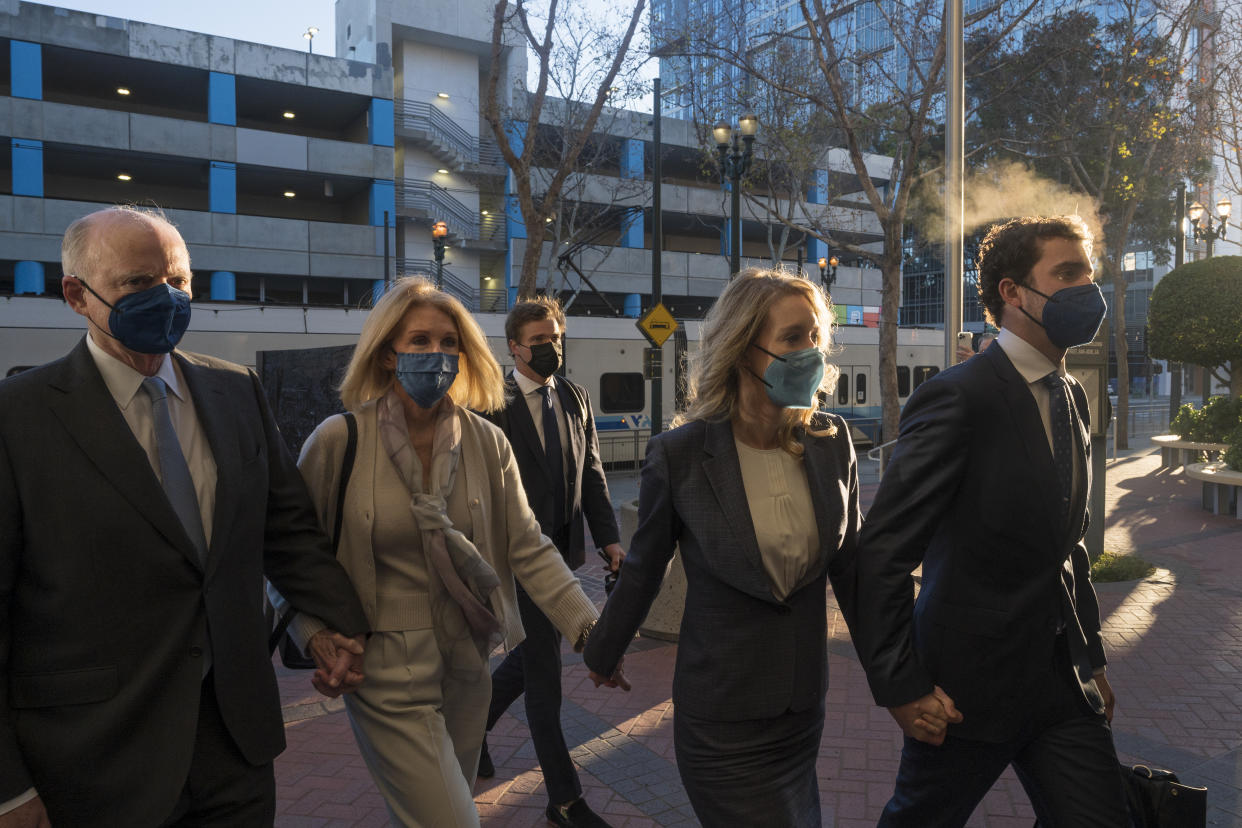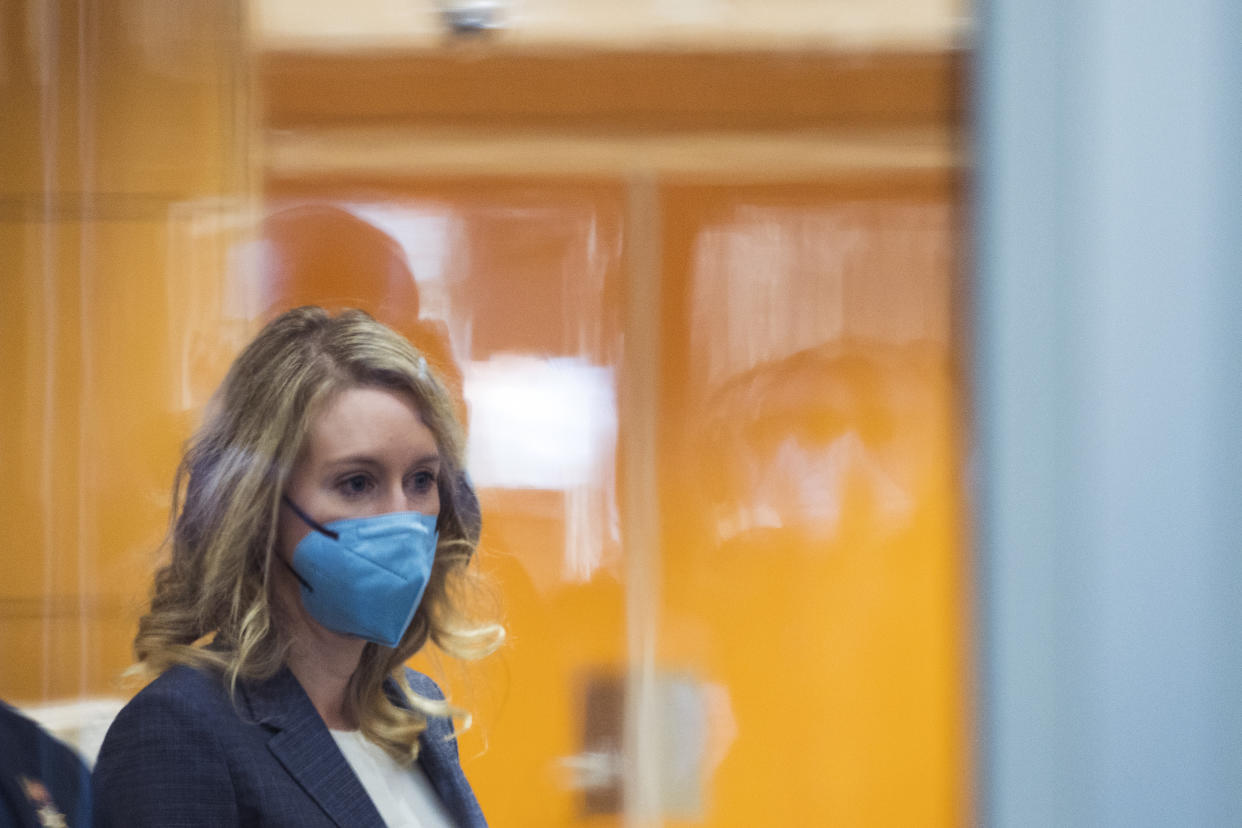Jurors review recordings of Holmes' boasts to investors
SAN JOSE, Calif. (AP) —
Jurors in the fraud trial of former Theranos CEO Elizabeth Holmes asked Thursday to replay audio recordings of Holmes boasting to investors about Theranos' progress toward developing a potentially revolutionary blood-testing technology.
In those recordings from December 2013, which were played earlier in the trial, Holmes talked up partnerships with established drug companies that didn’t pan out and contracts that never materialized because of problems with Theranos' technology.
Jurors are weighing the case after a three-month trial that captivated Silicon Valley, featuring testimony from 32 witnesses. including Holmes, and more than 900 exhibits. If convicted, the 37-year-old Holmes could face up to 20 years in prison.
THIS IS A BREAKING NEWS UPDATE. AP’s earlier story follows below.
SAN JOSE, Calif. (AP) — The jurors responsible for assessing 11 charges of fraud and conspiracy against former Theranos CEO Elizabeth Holmes began their third day of deliberations Thursday.
If they haven't reached a verdict by the end of the day, U.S. District Judge Edward Davila and the attorneys for both sides will discuss the possibility of taking a break until Jan. 3. The jury had originally signaled that it was willing to deliberate during the week between Christmas and New Year’s Day.
On Tuesday after roughly 13 hours of deliberation, the jurors asked the judge whether they could take home the 39-page document spelling out their legal instructions to study it more carefully.
The request, submitted just ahead of a previously scheduled one-day break in deliberations, was swiftly rejected on the grounds that all jury deliberations are supposed to happen inside an isolated room in the San Jose, California, courthouse where the trial was held.
The jury is charged with deciding whether Holmes turned her blood-testing startup into a massive scam. If convicted on all counts, Holmes, 37, could face up to 20 years in prison.
The trial revolves around allegations that Holmes duped investors, business partners and patients about Theranos' technology. She repeatedly claimed that the company's new testing device could scan for hundreds of diseases and other problems with a few drops of blood taken with a finger prick instead of a needle stuck in a vein.
The concept was so compelling that Theranos and Holmes raised more than $900 million, some of that from billionaire investors such as media magnate Rupert Murdoch and software titan Larry Ellison. The Palo Alto, California, company also negotiated potentially lucrative deals with major retailers Walgreens and Safeway. Holmes soon began to grace national magazine covers as a wunderkind.
Unknown to most people outside Theranos, the company’s blood-testing technology was flawed, often producing inaccurate results that could have endangered the lives of patients who took the tests.
After the flaws were exposed in 2015 and 2016, Theranos eventually collapsed. The Justice Department filed its criminal case in 2018.
In a dramatic turn on the witness stand last month, Holmes testified that her former lover and business partner Sunny Balwani had been covertly controlling her diet, her friendships and more while subjecting her to mental, emotional and sexual abuse.
Although her testimony cast Holmes as Balwani's pawn, her defense team did not mention the alleged abuse and its effects on Holmes during closing arguments.
Balwani’s lawyer adamantly denied Holmes’ accusations in court documents that the jury never saw. Jurors also never heard from Balwani, who intended to invoke his Fifth Amendment right against self-incrimination if he had been called to testify. Balwani, 56, faces similar fraud charges in a separate trial scheduled to begin in February.
That leaves the jury to decide whether the alleged partner abuse may have affected Holmes' decisions at Theranos.



